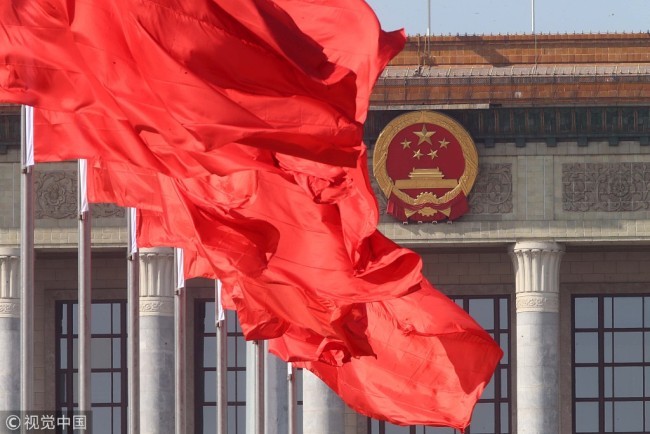Observers eye policy priorities at two sessions


Meetings take place against challenging domestic and overseas backdrop
Many observers from around the world will be looking for the course China will take as the annual two sessions political meetings open in Beijing next week.
Deputies of the National People's Congress, the country's top legislature, and members of the Chinese People's Political Consultative Conference National Committee, the leading political advisory body, will arrive in the capital for the events.
Although trade tensions between the United States and China appear to be easing, the meetings are still taking place against a challenging domestic and international economic backdrop.
Observers will be watching for the government's policy priorities at the meetings, which have added significance because they will be the last before the People's Republic of China marks its 70th anniversary in October.
Much will be revealed when Premier Li Keqiang delivers the Government Work Report after the NPC meeting opens on Tuesday. The CPPCC National Committee opens its session on Sunday.
The Government Work Report includes the target for GDP growth for the current year. Last year, it was set at "around 6.5 percent", with the eventual outcome being 6.6 percent.
Although this was the lowest annual growth rate since 1990, the country remains on course to becoming a "moderately well-off society" (as measured by the doubling of 2010's per capita GDP) by the end of next year in time for the 100th anniversary of the founding of the Communist Party of China in 2021.
Many expect the new target to be in a range of 6 to 6.5 percent, even though there has been some early-year buoyancy in the economy, with record bank lending growth in January. New loans hit 3.23 trillion yuan ($480 billion), compared with 2.9 trillion in the same month last year.
With few observers expecting a major surprise with the growth target, the main focus is likely to be on the government's domestic agenda. This involves further moves on supply-side reforms, State-owned enterprise reform, policies to boost the private sector, tax cuts to increase consumption, tackling shadow banking, rural revitalization, and further opening-up of the economy and allowing greater market access to foreign companies.




































